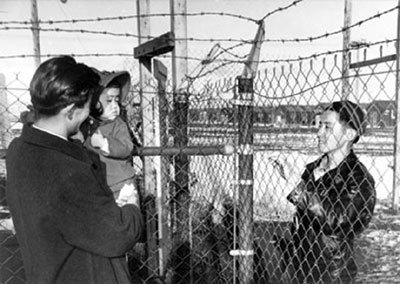Do you have plans to celebrate the 17th of September? If you’re
like the vast majority of people in the South Valley, this coming
Wednesday will probably go by as just another 24 hours of the work
week. After all, who really observes Constitution Day?
Do you have plans to celebrate the 17th of September? If you’re like the vast majority of people in the South Valley, this coming Wednesday will probably go by as just another 24 hours of the work week. After all, who really observes Constitution Day?
As holidays go, a day honoring the highest law of our land, the law establishing the foundation of our national government, doesn’t have quite the sex appeal of, say, the Fourth of July with all its brashness of pomp and parades and exploding fireworks. Yet here we are in the run up to one of the most important presidential elections in American history. The campaign between Barack Obama and John McCain is an event of historic magnitude in which the course of our nation’s future will be charted. But our nation would never have existed if a group of 55 men in Philadelphia didn’t sign their names to a four-page document on Sept. 17, 1781.
The Declaration of Independence is America’s birth certificate. The United States Constitution, on the other hand, serves as America’s driver’s license – giving us the freedom and the rights to roll down the road toward whichever destination we the people choose.
Unless they might be preparing for an exam in their high civics class, most Americans rarely consider the words of the U.S. Constitution and how those words affect their daily lives. That’s a shame. Part of being a patriot is understanding the fundamental values that makes America great. Those values are contained in the Constitution.
When we fail to uphold those constitutional values, we lose our way in our nation. Indeed, there have been many times in our nation’s past when we as a society have failed to uphold the rules laid down in the Constitution’s text. We pay a high price for our disservice to this document.
Last Fourth of July weekend, I traveled on a four-day “pilgrimage” to the site of the Tule Lake Relocation Center where my father worked as a music teacher. The site is now a dry scrub-land desert, but during World War II, a prison camp was built here to keep 20,000 people behind barbed wire. Men, women and children spent much of the duration of the war here. They committed no crime. The federal government forced them to come to this site and other “camps” because they were deemed a danger to national security based on the fact they shared a common ancestry with the people of Japan.
When President Franklin D. Roosevelt signed Executive Order 9066 initiating the relocation process of Japanese Americans, he neglected to perform the duty he had sworn to do when he took the oath of office. By imprisoning these people without the due process of law required by the Constitution, Roosevelt failed to uphold and protect the sacred values of America’s highest law. The man who told the nation that, “We have nothing to fear but fear itself,” allowed the paranoia of prejudiced people to lead him to commit a sacrilege of American values.
Today, some people insist that the forced internment of Japanese Americans during World War II was necessary for the protection of the nation during an occasion of war. After all, their argument goes, Japan was America’s enemy.
However, there is not a single documented case of a Japanese American during World War II committing an act of treason or sabotage against America. If our government had fairly applied the same faulty logic to the rest of the population, the United States would have been forced to build internment camps for Americans of German and Italian heritage. Most of the U.S. population would be put behind barbed-wire.
I would also contend that the internment of Japanese-American citizens actually lowered America’s national security. Putting it in dollars and cents, if an average cost of interning a single person equaled a conservative $1,000 a year, then the internment of 120,000 people required taxpayers to spend $1.2 billion a year to maintain these prison camps.
During World War II, that money could have built battle ships and supplied arms and other resources for America’s military forces. And instead of keeping them in camps, Japanese Americans could have been involved in the war effort either in the fields of battle or factories for armaments. Their labor might have helped end the war months early, potentially saving millions of lives in Europe and elsewhere.
The South Valley population has many Japanese American residents who either personally experienced the internment or who had family members in the camps. Ask them about the value of the U.S. Constitution to their personal history. They’ll gladly tell you that great document plays an important part in our daily lives. It’s something to remember this Wednesday and every 17th of September.













